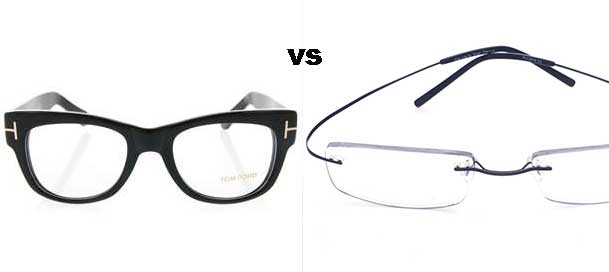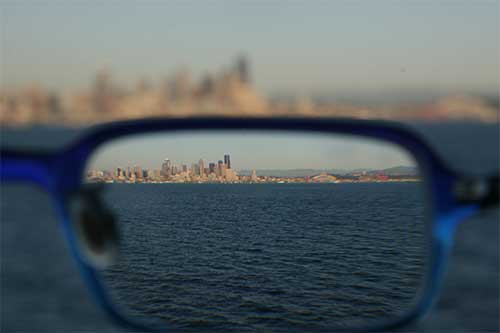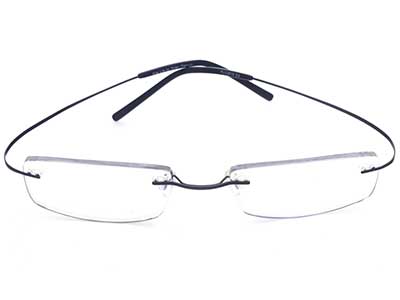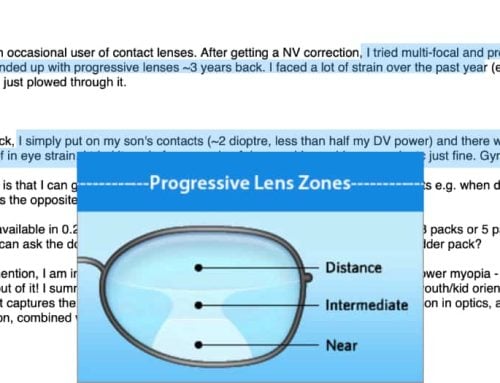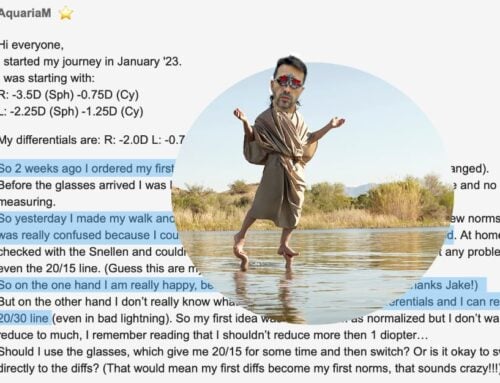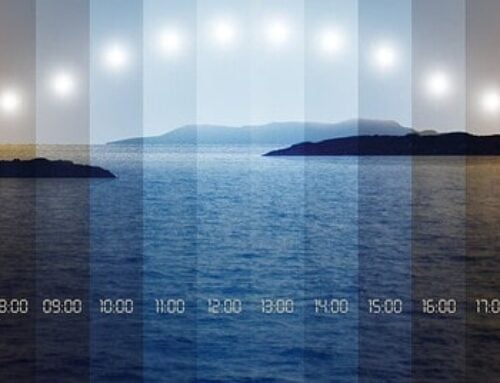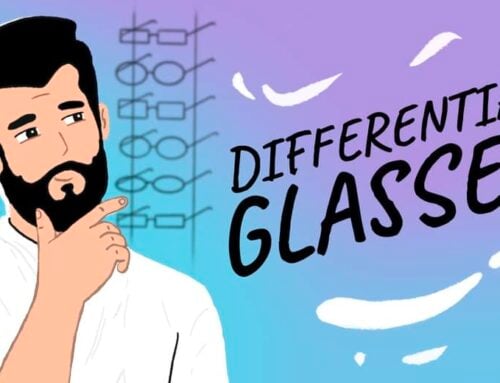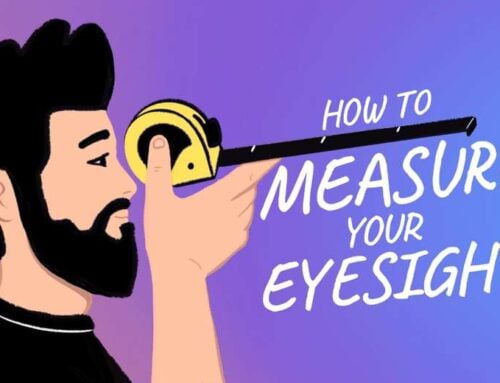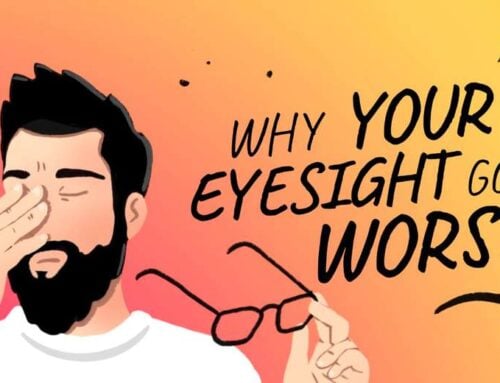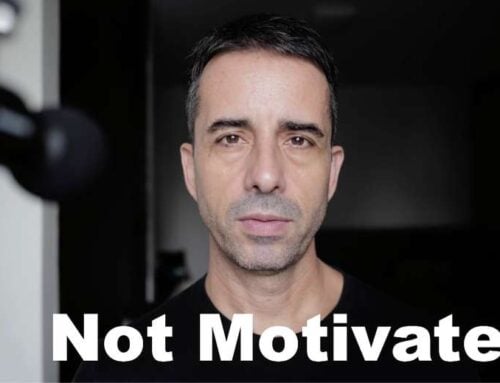The style of your glasses frames might subtly affect your mood. Certain types of frames that limit your field of vision can lead to an indistinct sense of unease or depression.
There are many interesting little details one may find over the years, when working with thousands of myopia sufferers. The type of frames used in glasses didn’t cross my mind for a very long time – in retrospect, it is something that fairly obviously can impact your experience of the world around you.
If you have been reading here, or taken any of the myopia courses, you already know about the importance of peripheral vision. And in case you have not, you might like to read this interesting study:
Peripheral Vision Can Influence Eye Growth And Refractive Development in Infant Monkeys
A bit of a side note here: The study had received funding by National Eye Institute Grants and the Vision Cooperative Research Centre in Sydney, Australia. There is lots of scientific support towards understanding myopia, though unfortunately most of the findings (over the past 40 years no less), are not reflected in treatment practices today. We know full well that NITM (near work induced transient myopia) is the cause of your initial vision deficiency, and that glasses (lens induced myopia) just make it worse.
Before we stray too far from the subject however, back to the subject of frames:
You want to cause as little additional restriction to your field of vision, as possible. Contact lenses are ideal in this regard, though they don’t lend themselves well to quick removal, for when you want close-up focus. For this reason, I generally don’t suggest contact lenses when you are working to improve your vision.
Frameless glasses are my top choice, since they don’t add a clearly visible border to your field of vision. My favorite frames, incidentally, share this trait.
Look at these borders, for example:
Not only do we have the blur outside of the lens area, which is unfortunately unavoidable (unless we wear contact lenses), but we also have that thick border to further emphasize a limited horizon of view.
You forget about this after a while, as your brain stops actively including this information as you see your surroundings.
Still though, the whole time, there is a thick, dark border, which reduces the amount of light that reaches your eye.
If you own a pair of glasses like this, try this quick experiment:
Don’t wear them for a while. When you put them on, be conscious of the frame (like the first time you ever wore them). Notice how everything is just a little bit darker, as soon as you put them on? This is especially noticeable during close-up, and if the ambient lighting is less than ideal.
Much better, is to wear a frame like this:
The ambient light (perceived) reduction is so much less, with this frameless type of lens mounting.
First reported to me by a client maybe 20 years ago, and since repeated in countless trials with clients, it has become a common theme:
People report to feel happier, wearing less light restrictive frames.
This is of course not in the bounds of a proper scientific study. My time is spent either helping you, or creating studies – that will be read by a handful of individuals and never be reported on in public media (as is the case with all myopia related study). So therefore, this is more on the level of ‘anecdotal evidence’, as well as an ‘Alex recommendation’: Get rid of those 1950’s style heavy frames, and try something light, and light friendly.
And as always, enjoy some healthy eyesight today!

